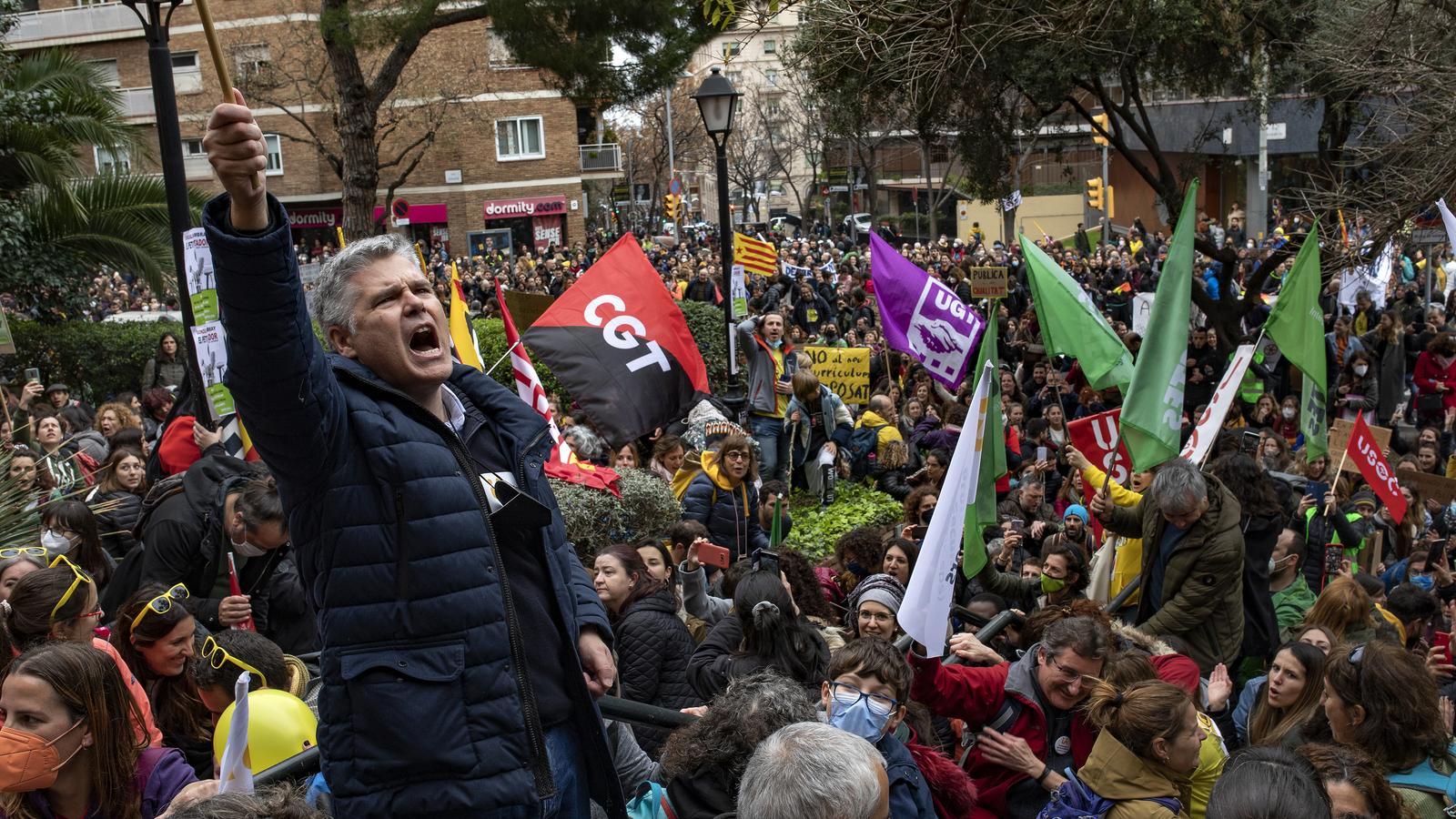Strike must give way to dialogue


The teachers' strike has led to a strong mobilisation especially in state schools and ven more so in secondary schools. Chartered schools, under attack from the unions, have not seconded the call. In any case, it had been years since teachers had struck so massively and taken to the streets, a discontent which has very diverse reasons. The call has had the undeniable virtue of bringing together everything from old grievances to pandemic fatigue and opposition to recent changes promoted by the Education Department. The fact is that for some time now teachers have been socially questioned or undervalued and there has been a disconnect with the administration. This means the current clash with minister Josep Gonzàlez-Cambray is expressing indignation over both labour and educational demands, but that, due to the initial union approach, has been very marked by the refusal to accept summer holidays being cut by one week. This is an issue families have not understood.
As always happens in these cases, both parties (the Department and the unions) accuse each other of refusing to dialogue. It is true that the minister Gonzàlez-Cambray has been resolute in pushing through relevant modifications to the syllabus and timetables without much consideration, but it is also true that the unions had not shown up at the last meetings. There is a huge gulf between them, and this has to change. Both parties have a responsibility to redirect the situation.
Proof of this lack of dialogue is the paradox that this strike in favour of state education and state ownership is made against the department that, in historical terms, is the most demanding with the chartered school sector, both in terms of enrolment protocols to include vulnerable students and cutting subsidies for single-sex schools. It is also paradoxical that in the school world the majority of voices are calling for courageous and innovative changes, but when it comes down to it, there is no way to join energies and reach a consensus on transformations. In the end, paralysis wins out. Often, only the good work of many teachers makes up for this lack of understanding between the administration, pedagogical associations, unions, employers' associations, family associations and students. What cannot be is that as a society we fail to give prestige to education, raise its quality and put it within everyone's reach. For too long now, attempts have been half-hearted.
It seems evident that, from inclusive policies to the defence of the Catalan language in the face of court rulings imposing 25% of classes in Spanish, from the improvement of teacher training to changes to the syllabus or classes for new arrivals, there are more coincidences than differences. On labour and organizational issues, the distance is probably greater. And there will always be the problem of resources. But we must sit down and talk about everything, with honesty and transparency. It is urgent and necessary. The strike has to give way, the sooner the better, to dialogue and to an improvement in education.
